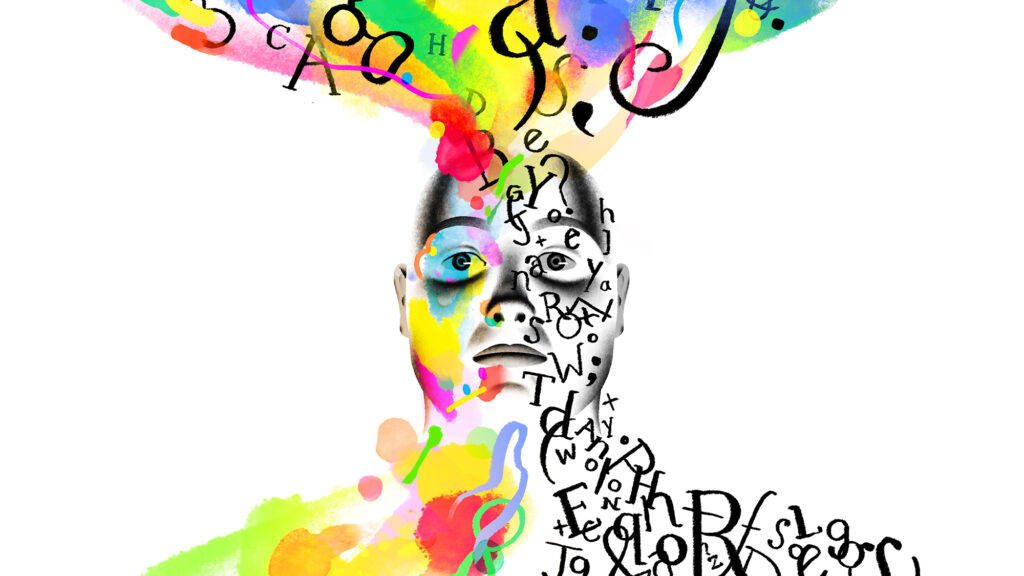
Do you ever feel like you’re in a constant battle with yourself? It’s like you have this vision of yourself and you’re always trying to be that vision, but no matter how hard you try (or don’t try as is often the case), you fail to be the person you expect yourself to be? If you answered yes to this question, the good news is that this means that you’re a human being because we all struggle with these internal conflicts. As such, you shouldn’t be concerned that you have conflicting impulses. The real problem is that most people don’t accept why they experience these different voices.
One of the main reasons we experience these conflicting impulses is because we are bodies whose brains have developed over millions of years. The reason this has led to conflict is that when we add a new function to our brain, the old functions don’t just disappear. This means that if a new mental construct contradicts a more ancient one, we can feel both impulses simultaneously.
This view of a brain divided is anathema to the ever-me. The ever-me likes to see itself as constant, consistent spiritual entity. The ever-me hates that it’s a body. Bodies are subject to change, decay, and ultimately death. This undermines everything the ever-me thinks about itself. It would rather deny our corporality and view these conflicting brain functions as part of a much bigger and much more important cosmic struggle between good and evil, which of course, the ever-me is a major player in.
Traditional faiths, which by and large support and protect the ever-me, provide us with spiritual practices to empower the “good” forces, while diminishing the power of the “evil” forces. Although these mental models and spiritual practices may help us navigate these conflicts, they do so at a cost. Most deleteriously, these models require us to believe that part of who we are as humans is evil, which leads to a great deal of self-loathing and even worse, judgement of others.
In contrast, Thanatism helps us accept our evolutionary brain by teaching us to accept our corporeality. Through Thanatism, we explicitly learn to accept the most frightening consequence of being a body–death. Once we overcome this fear, we can explore openly everything we’ve learned about how our bodies (and in particular our brains) have developed. More specifically, we can learn about and accept the fact that “we” are a juxtaposition of mental impulses that have developed to survive different environments, and as such, will naturally at times be in conflict with each other.
Once these conflicts are reframed as the unavoidable tensions between historically diverse brain functions, we don’t have to see them as a source for self-hate. Even better, by getting into the details, we can develop a more sophisticated model of these competing urges than the binary of “good” versus “evil”. It’s been my experience, that although understanding these conflicts in greater detail doesn’t eliminate them, it does provide the insight to recognize them for what they are, and through this, to better adjudicate between them.
The ever-me doesn’t just wrestle with the acceptance of the fact that our brains, and subsequently, our minds have developed over time. The fact is, our brain chemistry is ever changing, and these changes in who we are manifest themselves not only throughout our lives, but daily. We, as humans, are remarkably moody. We can go from joy, to sadness, to anger in the course of a day. Because the ever-me likes to believe, however, that it’s a consistent spiritual entity, rather than accepting these day-to-day fluctuations in our internal chemical states, it seeks to blame the outside world, and in particular, other people, for these changes.
Once we accept that we are chemical beings, we don’t have to blame others. It’s hard to explain how empowering this acceptance of our vagariousness is. When we’re in a bad mood, we don’t have to pretend it’s other people who are the problem. Mood swings don’t catch us off guard, because, by accepting them, we can recognize them before they cloud our vision. Once accepted, we can anticipate how we’ll react and in doing so, if not lessen the impact of our internal change on those around us, at least warn them of the pending storm.
As humans, we don’t like that we’re bodies. We much prefer the myth of the “ever-me”–that me who is important and eternal. As Thanatists, we develop the practices to accept our corporeal nature and its most tragic consequence. In so doing, we can fully accept what we’ve learned about our brains as a species, and though accepting these truths may not set us fully free, it does allow us to understand these conflicts in greater detail, and in so doing, helps us to better manage them for our long-term happiness.
